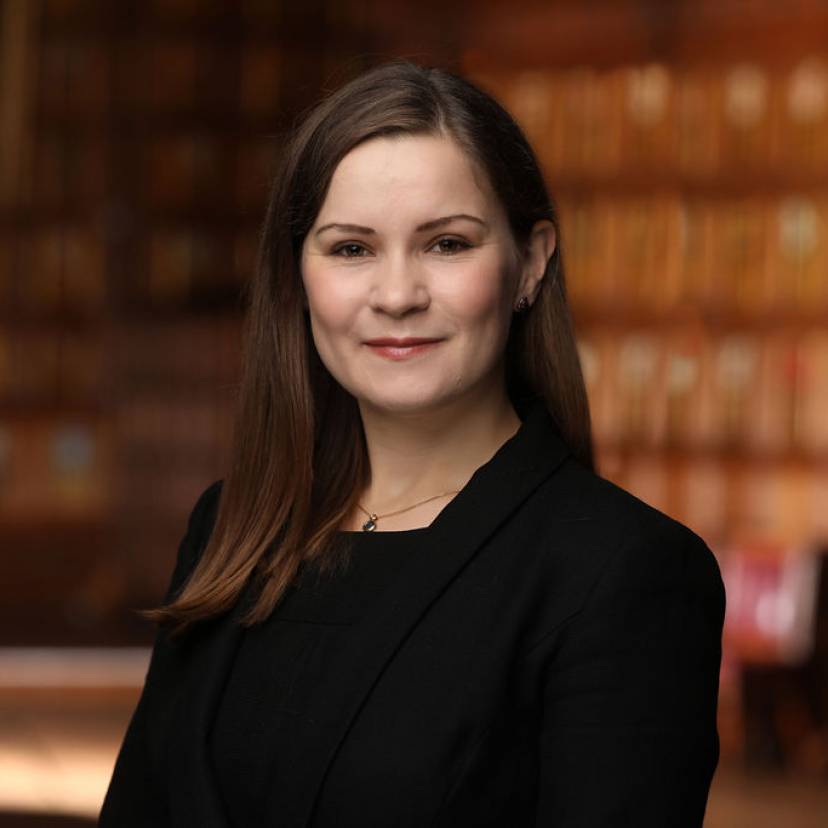Case Update: Towuaghantse v GMC - Coroners, experts, and contested hearings.
09 August 2021
Introduction
This case involved allegations of serious failings on the part of a paediatric surgeon in 2013, which resulted in the tragic, avoidable death of a new-born baby. The resultant appeal considered several important principles that will be of everyday application in healthcare regulatory cases, and which are already being cited and applied in other appeals to the High Court.
Factual summary
Patient A, a new-born baby, was born on 21 October 2013 with an extremely rare condition called exomphalos, where some of the internal organs, including the intestine, had developed outside the abdomen. This condition can be repaired by surgery after birth. Repair can sometimes be successfully achieved in one operation, but can require two or more operations, depending on the extent of the condition and the condition of the child. The appellant was the on-call paediatric surgeon who assessed Patient A and made the decision to undertake a primary closure procedure on the following day. Two operations were carried out on 22 and 23 October 2013. On the evening of 23 October, Patient A sadly died from a post-operative complication called Abdominal Compartment Syndrome (ACS).
The allegations against the appellant included failure to discuss the management plan and timing of surgery with senior surgical colleagues, that he did not obtain informed parental consent having failed to explain the various options for surgery. The decision to undertake a primary closure procedure was said to be inappropriate given Patient A’s size and weight, and the size of the exomphalos. A series of further allegations related to the appellant’s post-operative patient care and record keeping, including ignoring warnings from other medical practitioners when it became clear that Patient A was developing ACS. These failings resulted in the death of Patient A, who would have survived if treated competently. The allegations were found proven, and the MPT imposed a sanction of erasure.
Impact of the case
Use of Coroner’s findings
Ground 1 of the appeal related to the use that can be made of coroner’s findings in regulatory proceedings. In this case, an inquest into the death of Patient A took place between 5 and 8 March 2018, and recorded a narrative verdict, comprising findings of fact and a narrative conclusion, running to a total of three pages of text. The appellant did not dispute the admissibility of the findings of fact but did dispute the admissibility of the narrative conclusion, which identified three specific failures by the appellant which “directly contributed to the death”. Whilst these findings had the potential to be damaging to the appellant’s case before the MPT, their inclusion in the MPT bundle was not objected to at any of the case management hearings prior to the final hearing.
Mostyn J emphasises that Goddard LJ’s ‘relevancy principle’, that is, the principle that provides that opinion evidence is not relevant to a court, the exception being scientific or expert evidence (Hollington v F Hewthorn & Co [1943] KB 587, [595]), does not apply to inquisitorial proceedings such as regulatory proceedings of this type. He looks to various sources in confirmation of this, including the General Medical Council (Fitness to Practise) Rules Order of Council 2004 (SI 2004 No. 2608), r.34(1) which provide that: “The Committee or a Tribunal may admit any evidence they consider fair and relevant to the case before them, whether or not such evidence would be admissible in a court of law”. He also adopts the ‘impeccable analysis’ of Ouseley J in R (on the application of Squier) v General Medical Council [2015] EWHC 299 (Admin), [43 – 48], which again confirms that the relevancy principle does not apply to inquisitorial regulatory proceedings.
In light of this, Mostyn J found that the Coroner’s narrative conclusion was plainly admissible, was rightly admitted, and was handled appropriately by the tribunal in determining the facts. The key point is that is that at the fact-finding stage the MTP did not make unfair use of the Coroner’s narrative conclusion, which it weighed in the balance with all the other evidence without binding itself to those findings.
Use of expert evidence
The second ground of appeal related to the expert evidence. The GMC had relied on the written and oral expert evidence of a consultant paediatric surgeon, who used language that was ‘colourful, rhetorical, intemperate and unrestrained’ rather than ‘the measured, temperate, moderate and balanced prose that one is accustomed to reading from an expert witness’ [37]. The expert explained his strength of language as being because he felt so strongly that the appellant was guilty of gross professional misconduct. The strength of this opinion, and the fact that this expert and the appellant were in the same field, had met, corresponded, and even competed for jobs, were all factors relied on by the appellant in arguing that the expert was guilty of both apparent and actual bias.
The independence of the expert was raised before the MPT, which rules that there was no conflict of interest or bias, in a ruling described by Mostyn J as ‘unimpeachable’ (paragraph 40). The mere fact that the expert and the appellant knew each other professionally and had associations with the same institutions and mutual acquaintances does not demonstrate a lack of independence or presence of bias. The tests to be applied are the usual high tests for actual and apparent bias: “Actual bias is confined to the position where it is shown that the expert has a direct personal interest in the outcome of the proceedings which is other than de minimis. Apparent bias will be found to exist where the reviewing court or tribunal, attributing to the reasonable man knowledge of the relevant circumstances and adopting a broad approach, assesses on behalf of that reasonable man that there is a real danger of bias.” [41].
Notwithstanding the ruling in this particular case, the question of whether there is actual or apparent bias will be highly dependent on the facts of each individual case.
Towuaghantse was applied in Bux v GMC [2021] EWHC 762 (Admin), which also considered the admissibility of expert reports. In both cases, Mostyn J commented on the lack of oversight of expert evidence in regulatory proceedings, which he described as ‘an old fashioned free-for-all’ (Towuaghantse [36]), and emphasised the urgent need, in his view, for an equivalent of CPR Part 35 to be inserted in the procedural rules governing regulatory proceedings of this nature (Bux [50]).
Effect of denials on impairment/sanction
In considering impairment, the MPT panel attached some weight to the fact that the appellant had failed to accept any of the Coroner’s findings, and “had tried to attribute to others at least some of the responsibility for what had happened to Patient A”. The latter was described by the MPT as “a particularly regrettable feature of the case”. Mostyn J describes the MPT as having treated the various denials as “evidence of an incapacity to remediate and therefore of a risk to the public, as well as an aggravating feature contributing to the award of the ultimate penalty”.
Mostyn J gives this approach short shrift, describing it as ‘not procedurally fair for a registrant to face the risk of enhanced sanctions by virtue of having robustly defended allegations made against him’ (paragraph 63). He distinguished the making of a robust defence, which, following Awan v GMC [2020] EWHC 1553 (Admin), a registrant is entitled to do, no matter how incredible or implausible, with instances where the registrant acted with blatant dishonesty in conducting his defence. Mostyn J said the latter would ‘certainly say something about impairment and fitness to practise in the future’ [72].
Paragraph 52 of the MPT Sanctions Guidance state that “a doctor is likely to lack insight if they… failed to tell the truth during the hearing (this includes being dishonest or misleading)”, but Mostyn J emphasised that deployment of a robust defence should not have been construed as a refusal or an incapacity to remediate [76]. He also highlighted the difference between the straight denial of a fact e.g. ‘I did not do X’ and the defence of a proposed evaluation e.g. ‘I did X, but I was not wrong to do so because ABC’. The latter would require a nuanced analysis with a strong subjective component and does not mean that the registrant acted with blatant dishonesty, but simply that the tribunal preferred other evidence [72 – 73].
This was the only part of the appeal to succeed, and the impairment and sanctions phases were therefore remitted back to be reconsidered by the MPT, but without reference to or taking account of the fact that the appellant contested the allegations and did not admit the narrative conclusions of the Coroner.

